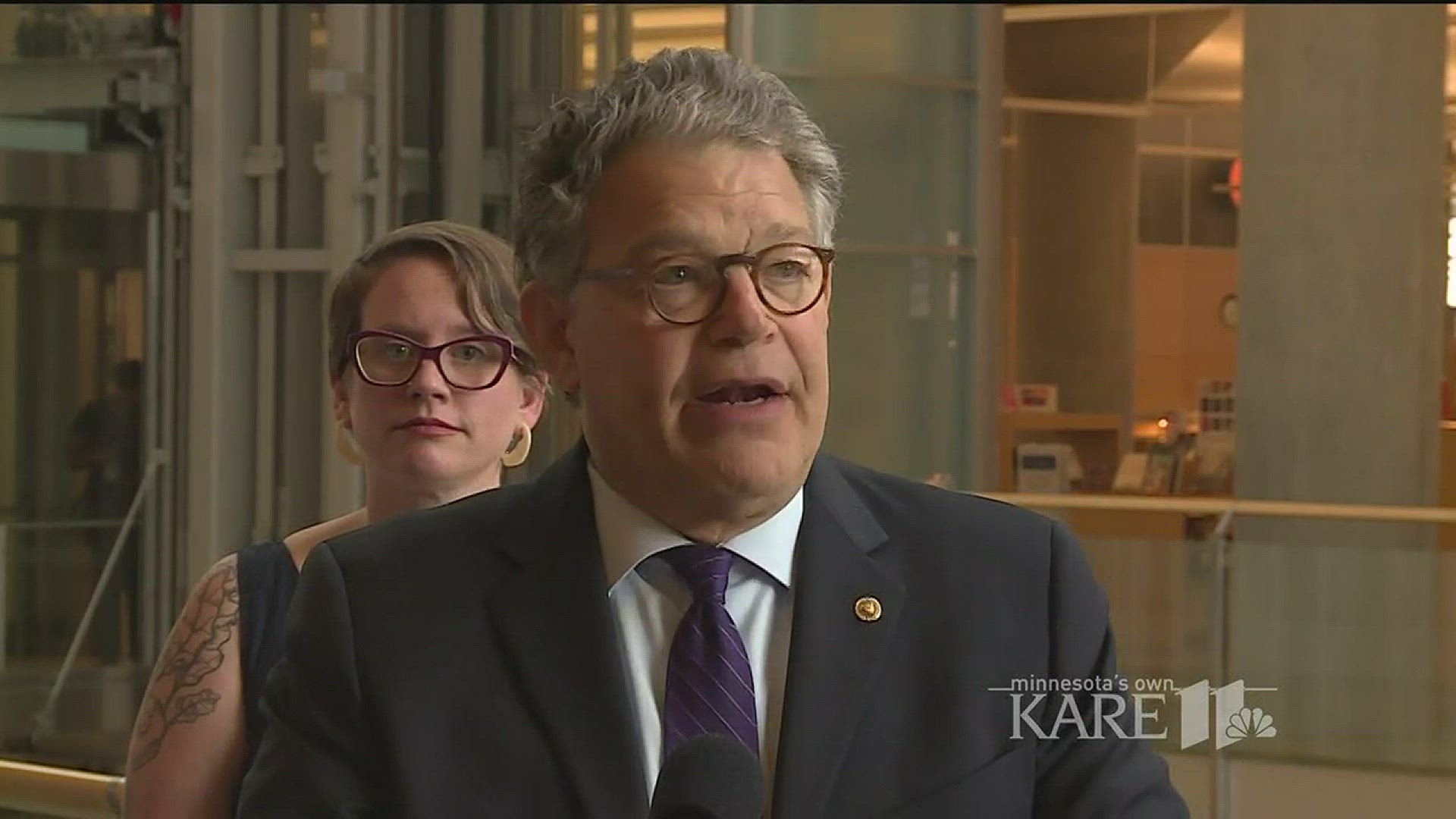MINNEAPOLIS -- US Senator Al Franken on Friday urged the Federal Communications Commission to listen to the voices of the American public on the question of net neutrality.
In an appearance at the Hennepin County Minneapolis Central Library, Minnesota's junior center pressed the FCC to keep the Open Internet doctrine adopted by the Obama Administration and upheld in multiple court challenges.
It was a cause Sen. Franken championed for years, but is at risk of being undone by the Trump Administration.
"We have to keep the pressure on them to pay attention to the American people," Sen. Franken told reporters.
He noted that more than 98 percent of the 22 million people who've submitted comments to the FCC have supported keeping the current Open Internet rules, as opposed to what the Trump Administration has dubbed the "Restoring Internet Freedom" rule.
"They need to listen to the American people, who overwhelmingly want us to maintain net neutrality, overwhelming want to keep an open Internet."
In simplest terms the concept of net neutrality is that Internet Service Providers, or ISPs, must treat all content the same in terms of delivery speed. Those providers are currently not allowed to create so-called fast lanes and slow lanes for data, or make decisions about download speeds based on the source or the content.
"The Internet Service Providers -- Comcast, Verizon, AT&T -- are the ones that benefit from a faster lane and a slow lane," Franken explained, saying those stand to profit financially from ending net neutrality.
"Everyone else in the world benefits from net neutrality."
Franken was joined by University of Minnesota research librarian Megan Kocher, who said the maintaining fairness in speeds it crucial to academic freedom and those who use libraries to stay connected to the world.
"The speed with which you access information is not a convenience; it is access. I want to reiterate that speed equals access," Kocher asserted.
Don Ball, the cofounder of COCO, the highly successful network of co-working spaces for budding entrepreneurs, said keeping an even playing field with Internet connectivity is essential.
"For the startups and small businesses I represent -- the job creators, tomorrow’s major employers -- net neutrality is not a convenience, it’s a matter of survival," Ball said.
Urban geographer and blogger Bill Lindeke shared the perspective of citizen journalists who track important local news throughout the state and often break major stories in an era of shrinking professional newsrooms. Lindeke, who writes the Twin City Sidewalks blog pointed to the work being done bloggers who rely on fair access to the Internet.
"That feeling of knowing you have something, or having information and sharing it with the world and doing it without a check or going through filters, that is so important to Democracy and American values," Lindeke told reporters.

